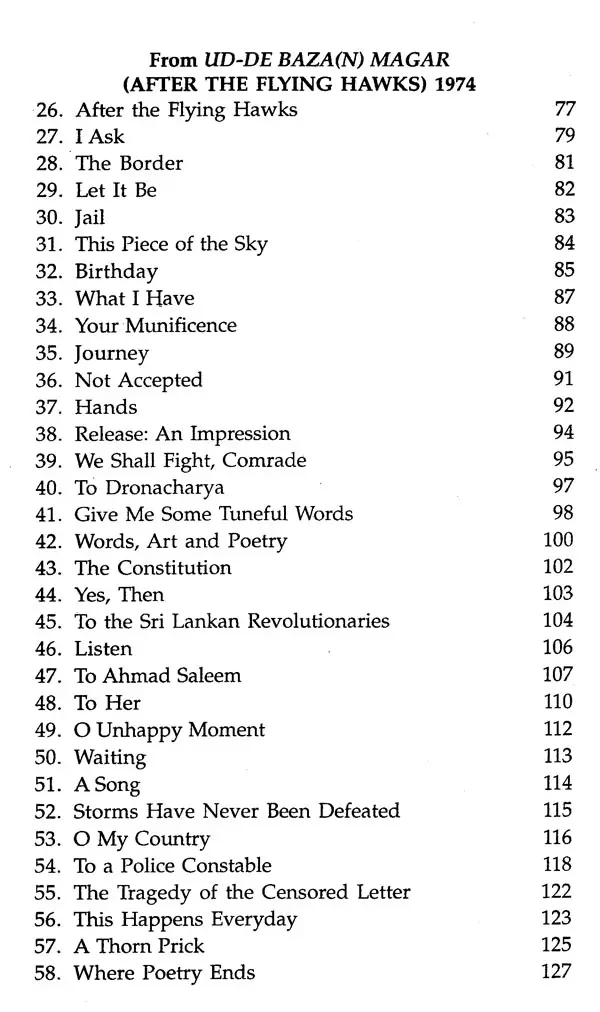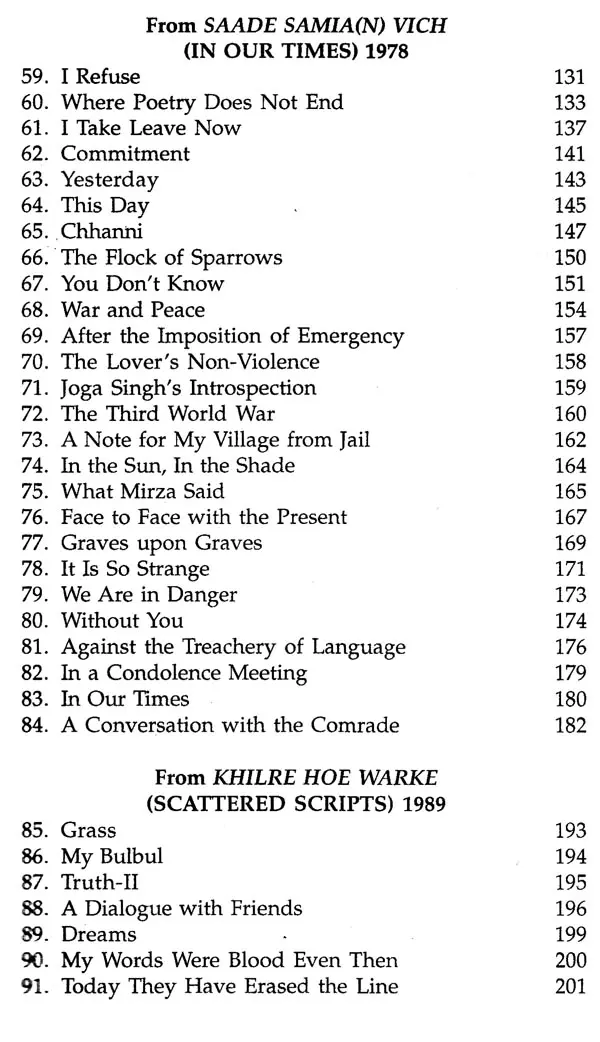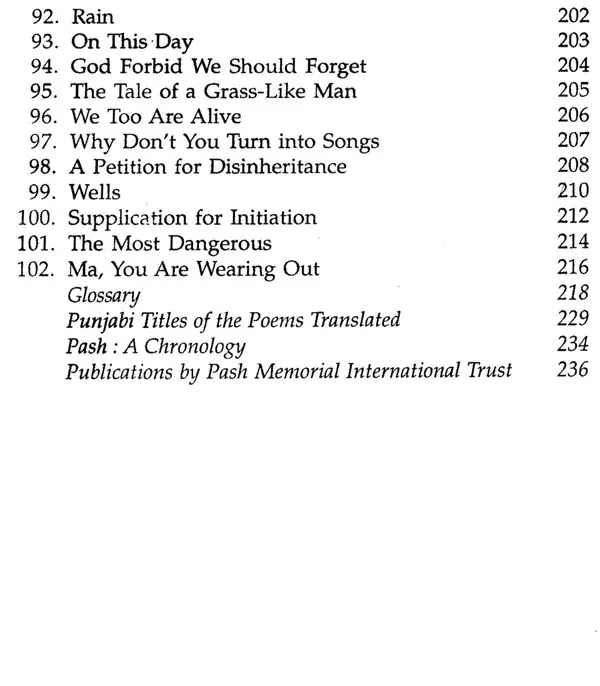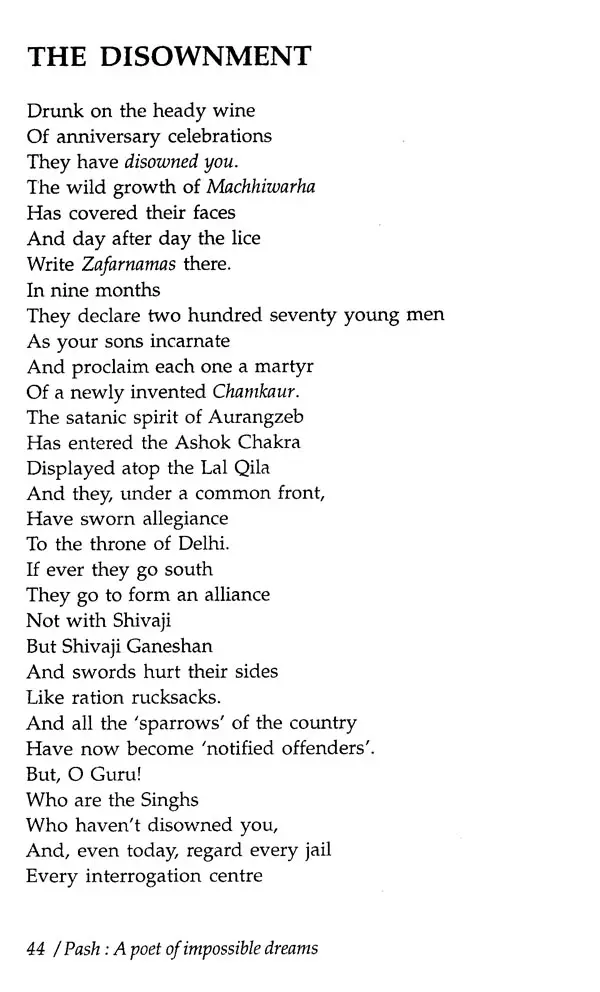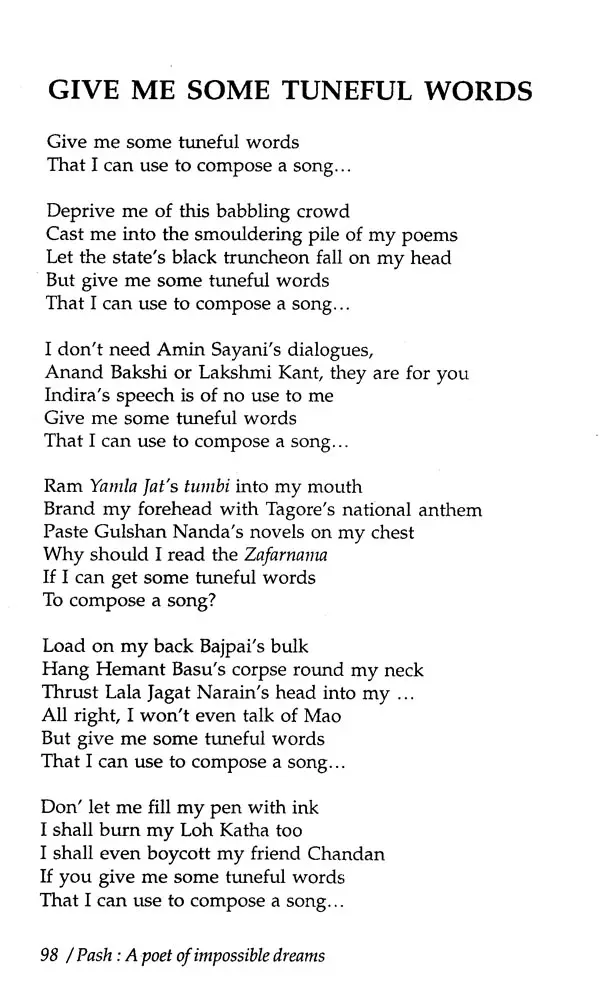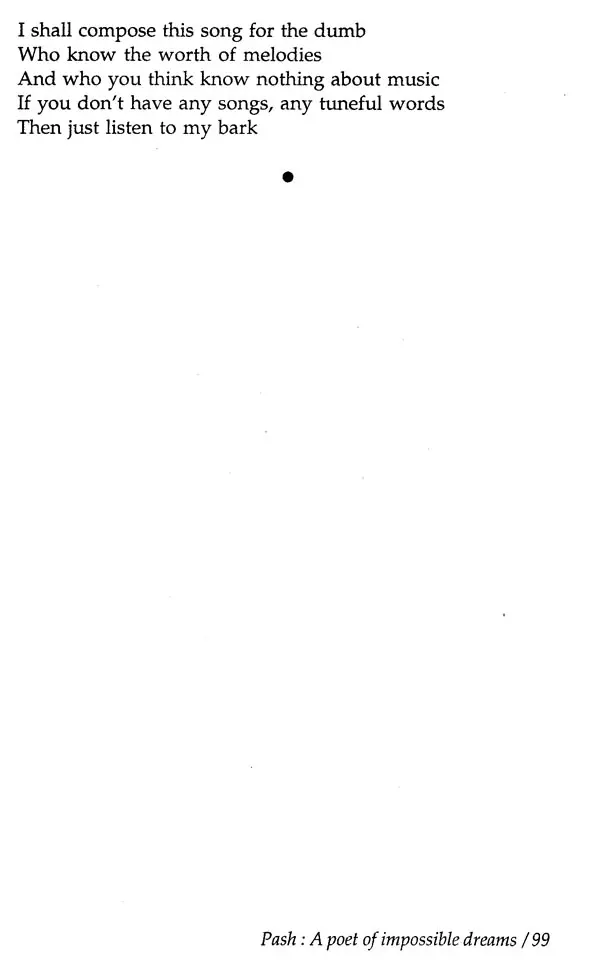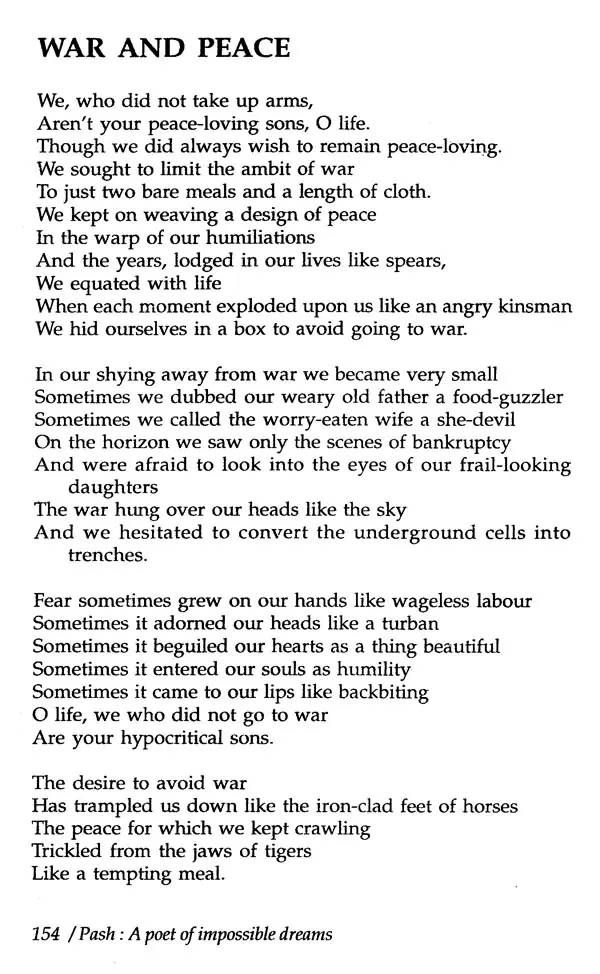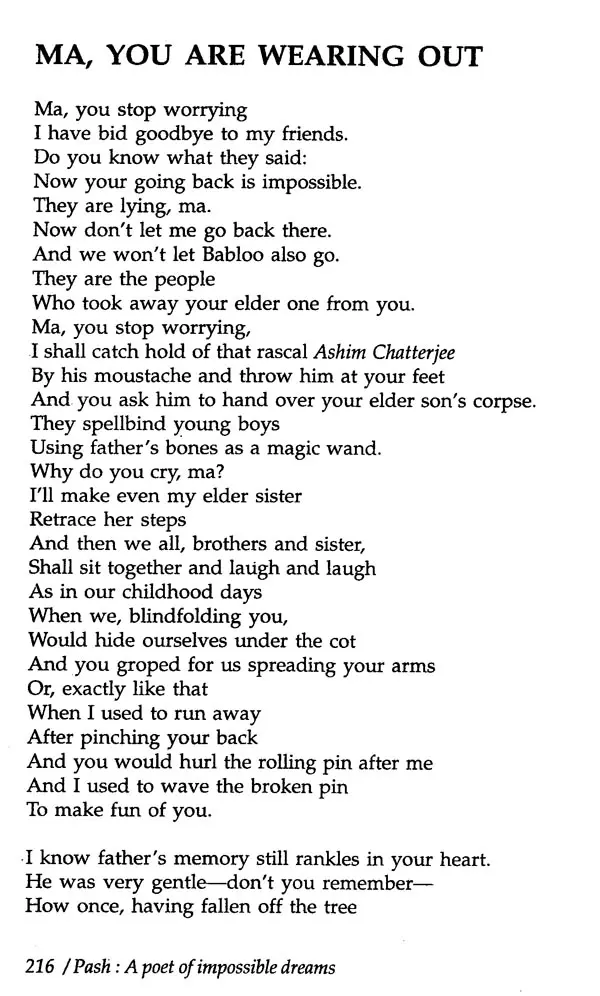About the Book Pash: A Poet of Impossible Dreams presents translations of just over one hundred poems of Pash. The selection is fairly representative of the earlier as well as the later more mature Pash. Although translated into English and Hindi, and also a little into some other Indian languages, Pash has been kept, more or less, enclosed in the Punjabi world, and more particularly in a leftist ideological straight jacket.
In his Introduction to these translations, T.C.Ghai attempts to have a fresh look at the poet, without any ideological blinkers but without undermining the essential Pash and his fierce revolutionary spirit and commitment. The translations substantially reflect the simplicity, directness, freshness and the seismic force of Pash's poetic style, idiom and content.
The present volume, published by Pash Memorial International Trust, is an attempt to open out Pash to a wider audience and a fuller appreciation of his poetic achievement.
About the Author About the Translator: T.C.Ghai (b.1937)has taught English language and literature at Deshbandhu Evening College (University of Delhi New Delhi, from where he retired as Reader in 2002. His long study of R.K. Narayan's novels, Pattern and Significance in the Novels of R.k. Narayan was published in Indian Literature, Sahitya Akademi in 1975. His M.Litt. Dissertation was on The Partition Theme in Hindi and Indo-Anglian Fiction (1978), a study of six Hindi and English novels including Yash Pal's Jhoota Sach, Bhisham Sahni's Tamas, Khuswant Singh's Train to Pakistan and Chaman Nahal's Azadi. He has published two short novels, The Stricken Moth (1984) and Alone in the Wilderness (2000), both from Writers' Workshop, Kolkata. He has published some poems in The Journal of the Poetry Society (India) and Poetry India: Voices for the Future (1993) and done poetry reviews for the poetry society's Journal during 1991-94. He published in 1998 a Hindi translation of his short stories, Adamboo, originally written in English. He has translated a Punjabi poet, late Dr Puran Singh Kanwar's collection of poems, Rattan di Rut (1984), into Hindi (Ratton Ki Rut, Sandhan, Delhi, 2000) and English (A Season of Nights, National Bookshop, Delhi, 2006).
Introduction A raw country lad turned revolutionary poet, without much formal academic or literary education or training, storming the Punjabi literary world in the late sixties of the last century like 'a bull in a china shop", as Amarjit Chandan, his contemporary, friend and once fellow-Naxalite, put it, rebelling against everything, almost everything-the Indian liberal democratic state, rejecting all its symbols, the constitution, the parliamentary system, the national flag, the national anthem, its concept of patriotism and national unity, rejecting M.K. Gandhi, breaking almost all the tenets of Sikh orthodoxy except his respect for the Gurus, defying all the rules of Punjabi literary tradition, breaking with its subject matter, its language, idiom and imagery, its aesthetics, occasionally deriding the greats like Waris Shah, Tagore, Ghalib, overturning many myths of Punjabi folk culture, showing ambivalence towards world's holy texts, towards Buddha, rejecting the city, the media, the ruling political class, the bureaucracy, first in the name of Marx, Lenin and Mao but later perhaps questioning even these prophets of the revolution and golden age of the future. Here is in essence a rejection of the whole process of history and its 'falsehoods' and the march of civilization as illusory and fundamentally flawed against the interests of the marginalized, the hewers of wood and drawers of water, the landless workers, tribals and the lowest rungs of the Indian peasantry.
**Contents and Sample Pages**


